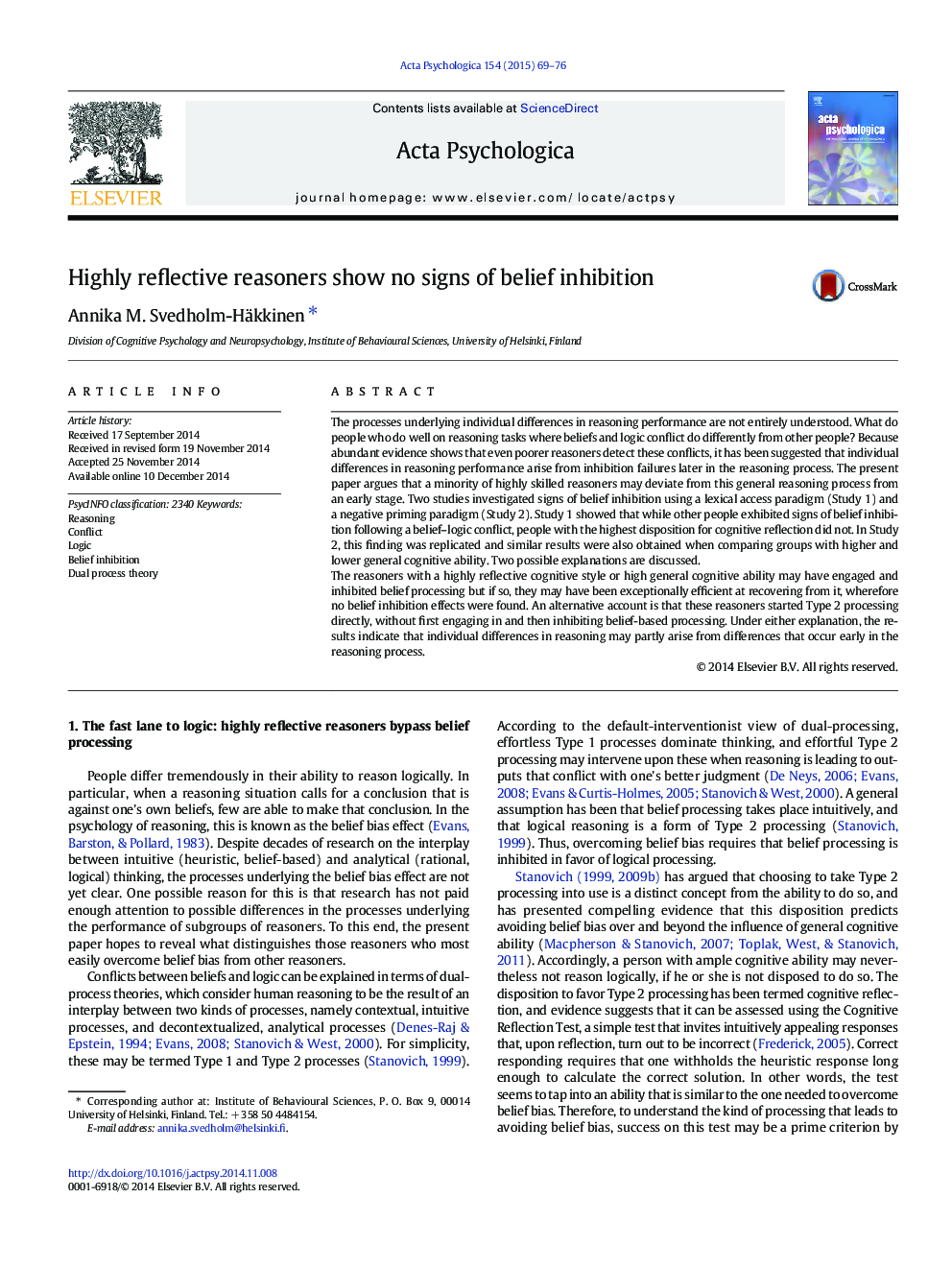| Article ID | Journal | Published Year | Pages | File Type |
|---|---|---|---|---|
| 919755 | Acta Psychologica | 2015 | 8 Pages |
•Processing belief–logic conflicts is assumed to involve effortful belief inhibition.•Studies compared groups divided on reflective thinking and general cognitive ability.•No signs of belief inhibition found in high-reflective and high-ability reasoners.•These reasoners may recover exceptionally efficiently from belief inhibition.•Or they may avoid belief processing altogether in favor of logical processing.
The processes underlying individual differences in reasoning performance are not entirely understood. What do people who do well on reasoning tasks where beliefs and logic conflict do differently from other people? Because abundant evidence shows that even poorer reasoners detect these conflicts, it has been suggested that individual differences in reasoning performance arise from inhibition failures later in the reasoning process. The present paper argues that a minority of highly skilled reasoners may deviate from this general reasoning process from an early stage. Two studies investigated signs of belief inhibition using a lexical access paradigm (Study 1) and a negative priming paradigm (Study 2). Study 1 showed that while other people exhibited signs of belief inhibition following a belief–logic conflict, people with the highest disposition for cognitive reflection did not. In Study 2, this finding was replicated and similar results were also obtained when comparing groups with higher and lower general cognitive ability. Two possible explanations are discussed.The reasoners with a highly reflective cognitive style or high general cognitive ability may have engaged and inhibited belief processing but if so, they may have been exceptionally efficient at recovering from it, wherefore no belief inhibition effects were found. An alternative account is that these reasoners started Type 2 processing directly, without first engaging in and then inhibiting belief-based processing. Under either explanation, the results indicate that individual differences in reasoning may partly arise from differences that occur early in the reasoning process.
